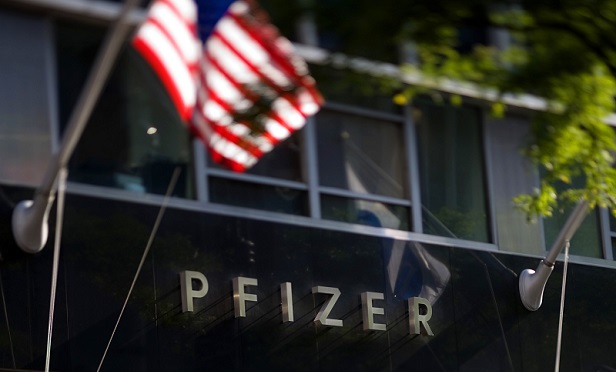
 (Photo: Robert Caplin/BB)
(Photo: Robert Caplin/BB)
Pfizer Inc. used a "purportedly independent" charity to help it sharply raise the price of a heart drug, shielding patients from the increase while Medicare picked up the higher costs, the U.S. Justice Department said Thursday in a civil settlement announcement.
Pfizer will pay about $24 million in the anti-kickback settlement, the government said in a statement. It's the latest agreement in a long-running U.S. investigation into drug maker ties to patient charities. Pfizer will also enter into a five-year monitoring agreement with the Department of Health and Human Services Office of Inspector General.
For drug makers, the charities have been a way to help patients with out-of-pocket costs imposed by insurers and government programs. Without them, drug makers argue, patients might skip doses or avoid treatment altogether because of the expense.
Over the last two years, the government has been issuing subpoenas and investigating the relationships between drug companies and the charities, which are supposed to operate independently from their industry donors. Medicare bars direct subsidies of products by drug makers as kickbacks.
Patient Charity
The Pfizer settlement is focused on three drugs: Sutent and Inlyta for kidney cancer, and the heart-rhythm drug Tikosyn. Sutent had U.S. sales of $374 million last year, while Inlyta sold $126 million. Tikosyn sold $153 million in 2016, according to the company.
In the case of the heart rhythm drug, Pfizer worked with the Patient Access Network Foundation to finance a fund for heart patients at the same time it was taking a huge price increase. The drug maker raised the price of Tikosyn — by 44% during the last three months of 2015, according to the government.
"Pfizer coordinated the timing of the opening of the fund for these patients with the implementation of a Tikosyn price increase," the government said. For the next nine months, patients on the drug accounted for virtually all the beneficiaries of the charitable fund, the Justice Department said.
In 2015, Pfizer gave more than $10 million to the Patient Access Network Foundation, according to a summary by the drug maker. It doesn't specify how much of that went to the heart drug fund.
In the case of the kidney cancer drugs, the New York-based drug maker worked with a third-party pharmacy company to steer patients to the foundation for financial help, instead of giving out free drug. It tracked data from the pharmacy to confirm that some that Pfizer's donations were going to patients on its products, according to the Justice Department.
Costly Drugs



